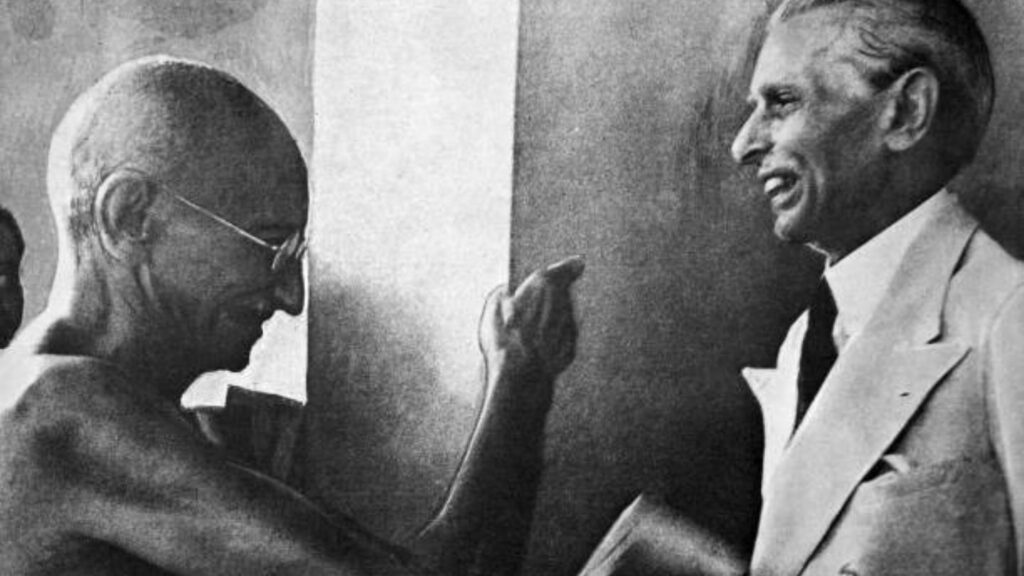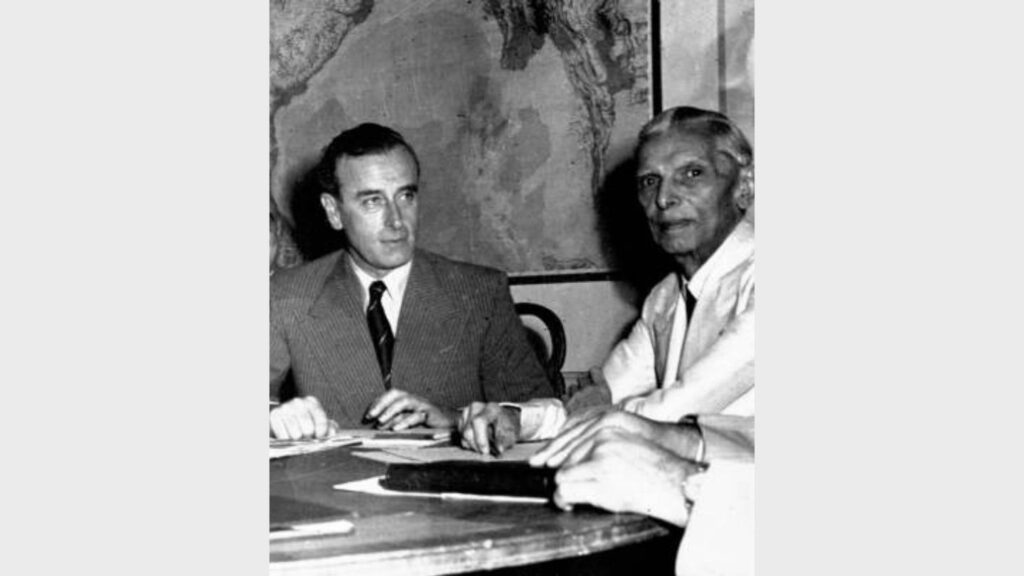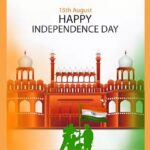The Last Dawn of Empire: How 24 Hours Changed the Fate of a Subcontinent
On August 14, 1947, as the sun rose over the Indian subcontinent for the final time under British rule, three men in three different cities would shape the destiny of millions through a single, fateful day that would end three centuries of colonial dominion.

The Significance of August 15th
The choice of August 15, 1947, as India’s independence date emerged from a confluence of political expediency and personal symbolism. Originally, British Prime Minister Clement Attlee had envisioned transferring power by June 30, 1948. However, escalating communal violence and mounting tensions forced Lord Louis Mountbatten, the last Viceroy of India, to accelerate the timeline dramatically.
When pressed for a specific date during a press conference, Mountbatten made what he later described as a spontaneous decision. “The date I chose came out of the blue,” he admitted in his memoirs, as documented in “Freedom at Midnight” by Dominique Lapierre and Larry Collins. The date held deep personal significance—it marked the second anniversary of Japan’s surrender in World War II, a moment linked to Mountbatten’s triumph as Supreme Allied Commander in Southeast Asia.
For Mountbatten, August 15 represented more than administrative convenience; it symbolized what he viewed as a “new birth in Asia,” transforming military victory into political liberation.
Astrological Concerns and Midnight Compromise
The selected date created an unexpected diplomatic challenge. Indian astrologers declared August 15, 1947, as deeply inauspicious, falling on a Friday during the dark lunar fortnight (Krishna Paksha Chaturdashi) and preceding Amavasya, the new moon day traditionally considered unlucky for significant beginnings.
One prominent astrologer wrote urgently to Mountbatten: “For the love of God, do not give India her independence on August 15. If floods, famine and massacres follow, it will be because free India was born on a day cursed by the stars.”
To address these concerns while maintaining Mountbatten’s chosen date, Indian leaders devised an ingenious compromise. The official transfer of power would occur at the stroke of midnight between August 14 and 15. This timing exploited a crucial distinction: while the Western calendar marked it as August 15, in the Hindu calendar system, a new day’s inauspiciousness began only at sunrise. The midnight ceremony thus technically avoided the astrological dangers while satisfying both political and cultural sensitivities.
Karachi Morning: Assassination Plot and Ceremony
9:00 AM – The Governor-General’s Oath
In Karachi’s sweltering heat, Mountbatten faced his most perilous assignment. Just hours before his arrival, a Criminal Investigation Department officer had delivered a chilling intelligence report: “Sir, the plot is on.” According to security sources, at least one bomb—possibly several—would target the open car carrying Mountbatten and Muhammad Ali Jinnah through Karachi’s crowded streets.
Despite the threat, the ceremony proceeded in the Constituent Assembly Hall. Mountbatten administered the oath to Jinnah, the gaunt, chain-smoking barrister whose political maneuvering had carved Pakistan from the disintegrating British Empire. Jinnah, already weakened by tuberculosis but possessing an iron will, delivered his vision for the new nation: “You are free; you are free to go to your temples, you are free to go to your mosques or to any other place of worship in this State of Pakistan.”
As a 31-gun salute thundered across Karachi and fireworks illuminated the sky, the celebration masked the brewing catastrophe across the subcontinent.
The Human Cost of Partition
Even as Pakistan celebrated its birth, the Punjab region descended into unprecedented violence. The partition had triggered one of history’s largest forced migrations, with Hindus and Sikhs fleeing eastward to India while Muslims moved westward to Pakistan. The roads between became killing fields.
Trains arrived at stations carrying corpses instead of passengers, their compartments filled with bodies bearing evidence of savage communal violence. In Lahore, canals ran red with blood, carrying dismembered remains as extremists from all communities preyed upon vulnerable refugees. The final toll would reach staggering proportions: up to two million dead and fifteen million displaced—a humanitarian catastrophe of unprecedented scale.

3:45 PM – The Assassination Attempt That Never Came
As Mountbatten’s Rolls Royce meandered through Karachi’s streets with Jinnah beside him, the Viceroy’s pulse raced. On balconies overlooking their route, Criminal Investigation Department officers maintained vigilant watch, weapons at the ready.
“A Hindu neighbourhood,” Mountbatten noted mentally as they entered Elphinstone Street, Karachi’s principal commercial thoroughfare. “This is where it will happen.” The area’s shops and markets belonged primarily to Hindu merchants—embittered and frightened by the celebration of Pakistan’s creation unfolding around them.
For five agonizing minutes, the motorcade crept through unusually subdued crowds. Mountbatten later recalled this as “the most harrowing drive of his life.” Yet nothing occurred. According to Lapierre and Collins’ investigation, the assassination plot failed when the designated bomber developed last-minute reservations and abandoned his mission.
Calcutta: Gandhi’s Moral Crusade
The Mahatma’s Solitary Battle
While politicians celebrated in grand halls, Mahatma Gandhi chose a different path. Rejecting invitations to independence ceremonies, he remained in Calcutta, recognizing that his place was not among the powerful but among the suffering.
The city had become a cauldron of communal hatred, with Hindu and Muslim mobs engaging in indiscriminate violence against former neighbors. Gandhi, despite his 78 years and frail health, positioned himself at the epicenter of this chaos, occupying the modest home of a Muslim friend—itself a quiet act of defiance and solidarity.
August 14: The Fast That Stopped Violence
On the morning of August 14, as angry mobs gathered outside his residence, Gandhi appeared at the window accompanied by his granddaughter and an unlikely ally: Huseyn Shaheed Suhrawardy, Bengal’s former Chief Minister and a previous critic who had now joined Gandhi’s peace mission.
“We must work until every Hindu and Muslim in Calcutta can return safely to their homes,” Gandhi told the crowd, his voice carrying the moral authority of decades of struggle. “Our efforts will continue until our last breath.”
Remarkably, Gandhi’s presence and his decision to fast unto death if violence continued achieved what police and military forces could not. The city’s violence began to subside, demonstrating that moral force could triumph where conventional authority failed. His hunger strike had literally starved out hatred, proving that individual conscience could overcome collective madness.
New Delhi Evening: Nehru’s Moment of Destiny
9:00 PM – Sacred Rituals and Secular Fears
At 17 York Road, Jawaharlal Nehru was making final preparations for what would become one of history’s most memorable speeches. However, his preparation was interrupted by an unexpected visit from Hindu seers bearing sacred offerings from South India.
The religious delegation carried holy water from the rivers of Tanjore, prasadam (blessed food) from a Nataraja temple in Madras, and a five-foot ceremonial mace. In a ritual blending ancient tradition with modern politics, they sprinkled Nehru with holy water, applied sacred ash to his forehead, placed their scepter on his arms, and draped him in blessed cloth.
Despite this auspicious ceremony, Nehru’s mood quickly turned to despair upon receiving reports from Punjab. Lahore—the cultural heart of undivided India—was burning. Water supplies to Hindu and Sikh quarters had been severed in multiple parts of the city.
“Stunned, his voice barely a whisper,” as recorded by Lapierre and Collins, Nehru lamented: “How am I going to talk tonight? How am I going to pretend there’s joy in my heart for India’s independence when I know Lahore, our beautiful Lahore is burning?”
11:00 PM – The Tryst With Destiny
Despite his anguish over the violence, Nehru’s car navigated through barricaded Delhi streets toward the Constituent Assembly. Sporadic gunfire echoed through the night air as British security escorts remained alert for potential threats.
As Nehru entered the assembly hall, the atmosphere was electric with anticipation. Flags fluttered in the humid air, conch shells blared like ancient trumpets announcing the dawn of a new age. Mountbatten, having returned from Karachi, awaited the ceremony that would formally end British rule in India.
At precisely 11:00 PM, Nehru rose to deliver words that would echo through history:
“Long years ago we made a tryst with destiny, and now the time comes when we shall redeem our pledge, not wholly or in full measure, but very substantially. At the stroke of the midnight hour, when the world sleeps, India will awake to life and freedom.”
Midnight: The Birth of Nations
As the clock approached midnight, the tension in the assembly hall reached its crescendo. At the stroke of twelve, cheers erupted throughout the building and across the nation. The Union Jack was lowered for the final time, replaced by the Indian Tricolour ascending the flagstaff.
Fireworks exploded over the Red Fort, illuminating Delhi’s night sky as crowds surged in ecstatic celebration around India Gate. Across the subcontinent, temples came alive with prayers and the ringing of bells, marking the end of British colonial rule.
Nehru’s words captured the magnitude of the moment: “A moment comes, which comes but rarely in history, when we step out from the old to the new, when an age ends, and when the soul of a nation, long suppressed, finds utterance.”
Historical Legacy
The events of August 14-15, 1947, represent one of history’s most complex decolonization processes. Within 24 hours, three centuries of British rule ended, two new nations were born, and millions of lives were forever changed. The day encapsulated both the triumph of independence movements and the tragedy of partition—freedom achieved at an enormous human cost.
The contrasts were stark: while politicians celebrated in air-conditioned halls, refugees died on burning roads; as Gandhi fasted for peace in Calcutta, communal violence raged across Punjab; while Mountbatten narrowly escaped assassination in Karachi, Nehru proclaimed India’s destiny in Delhi.
These final hours of the British Raj demonstrate how individual choices and chance events can alter the course of history. Mountbatten’s personal connection to August 15, the midnight compromise with astrologers, the failed assassination plot, Gandhi’s moral intervention, and Nehru’s eloquent vision all combined to create a day that would be remembered as both glorious and tragic—the simultaneous birth of freedom and the death of unity.
The partition of British India remains one of the 20th century’s most significant events, its consequences continuing to shape South Asian politics, society, and international relations to this day. The final 24 hours of the Raj serve as a microcosm of the broader independence struggle: marked by courage and cowardice, hope and despair, unity and division—ultimately demonstrating that historical moments are shaped not by abstract forces but by very human emotions, decisions, and circumstances.






